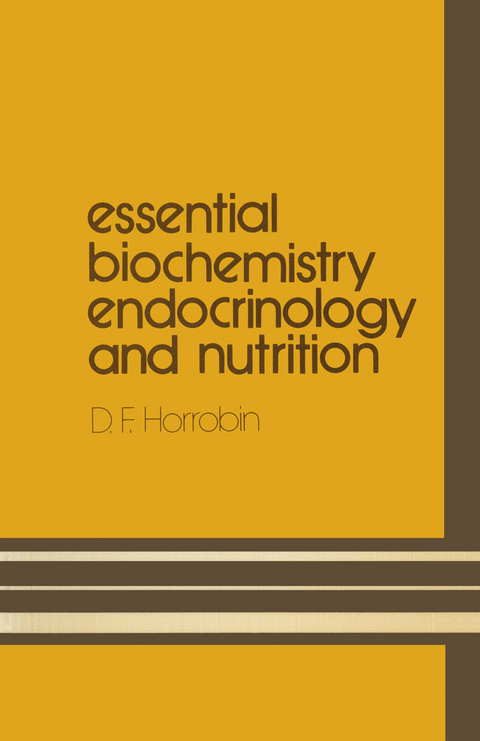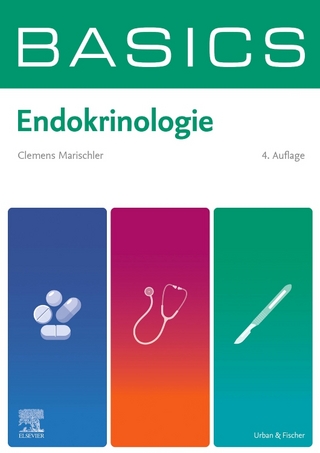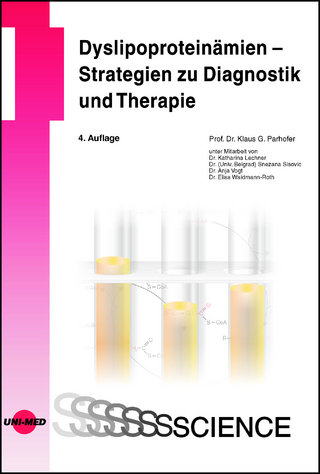
Essential Biochemistry, Endocrinology and Nutrition
Seiten
1971
|
Softcover reprint of the original 1st ed. 1971
Kluwer Academic Publishers (Verlag)
978-0-85200-025-0 (ISBN)
Kluwer Academic Publishers (Verlag)
978-0-85200-025-0 (ISBN)
Biochemistry is the study of the chemistry of living organisms, of the ways in which food is used to serve all the many needs of the body. Energy is required for digestion, and for the functioning of the kidney, the liver, the brain and all the other organs in the body.
Biochemistry is the study of the chemistry of living organisms, of the ways in which food is used to serve all the many needs of the body. Biochemistry is closely connected with nutrition, the study of the types and amounts of various materials required in the diet. Biochemistry is also inextricably int~rtwined with endo crinology, the study of hormones, for most of the hormones exert their actions by altering the behaviour of chemical reactions within the body. The central problem in biochemistry is that of the supply of energy. Energy is needed for a multitude of purposes of which muscular activity is the best known. Energy is required for digestion, and for the functioning of the kidney, the liver, the brain and all the other organs in the body. Energy is also essential for the building up of the complex organic molecules of which the body is con structed. Ultimately, most of the energy utilized on earth comes from the sun. Plants are able to tap this energy source directly by the process of photosynthesis. By using pigments, notably the green chlorophyll, plants can trap the energy of sunlight and use it to build up complex substances such as fat, carbohydrate, protein and nucleic acids. The only raw materials required are carbon dioxide, water and simple inorganic substances such as nitrates which can be extracted from the soil.
Biochemistry is the study of the chemistry of living organisms, of the ways in which food is used to serve all the many needs of the body. Biochemistry is closely connected with nutrition, the study of the types and amounts of various materials required in the diet. Biochemistry is also inextricably int~rtwined with endo crinology, the study of hormones, for most of the hormones exert their actions by altering the behaviour of chemical reactions within the body. The central problem in biochemistry is that of the supply of energy. Energy is needed for a multitude of purposes of which muscular activity is the best known. Energy is required for digestion, and for the functioning of the kidney, the liver, the brain and all the other organs in the body. Energy is also essential for the building up of the complex organic molecules of which the body is con structed. Ultimately, most of the energy utilized on earth comes from the sun. Plants are able to tap this energy source directly by the process of photosynthesis. By using pigments, notably the green chlorophyll, plants can trap the energy of sunlight and use it to build up complex substances such as fat, carbohydrate, protein and nucleic acids. The only raw materials required are carbon dioxide, water and simple inorganic substances such as nitrates which can be extracted from the soil.
1 Introduction.- 2 Important substances in biochemistry.- 3 Carbohydrate metabolism.- 4 Fat metabolism.- 5 Proteins.- 6 Nucleic acids and protein synthesis.- 7 The liver.- 8 The vitamins.- 9 Nutrition.- 10 The thyroid gland.- 11 The adrenal cortex.- 12 Calcium and the parathyroids.- 13 The regulation of blood glucose.- 14 The pituitary and hypothalamus.
| Erscheint lt. Verlag | 28.2.1971 |
|---|---|
| Zusatzinfo | 118 p. |
| Verlagsort | Dordrecht |
| Sprache | englisch |
| Maße | 140 x 216 mm |
| Themenwelt | Medizinische Fachgebiete ► Innere Medizin ► Endokrinologie |
| Naturwissenschaften ► Biologie ► Biochemie | |
| ISBN-10 | 0-85200-025-1 / 0852000251 |
| ISBN-13 | 978-0-85200-025-0 / 9780852000250 |
| Zustand | Neuware |
| Haben Sie eine Frage zum Produkt? |
Mehr entdecken
aus dem Bereich
aus dem Bereich
Buch | Hardcover (2023)
UNI-MED (Verlag)
CHF 55,70


